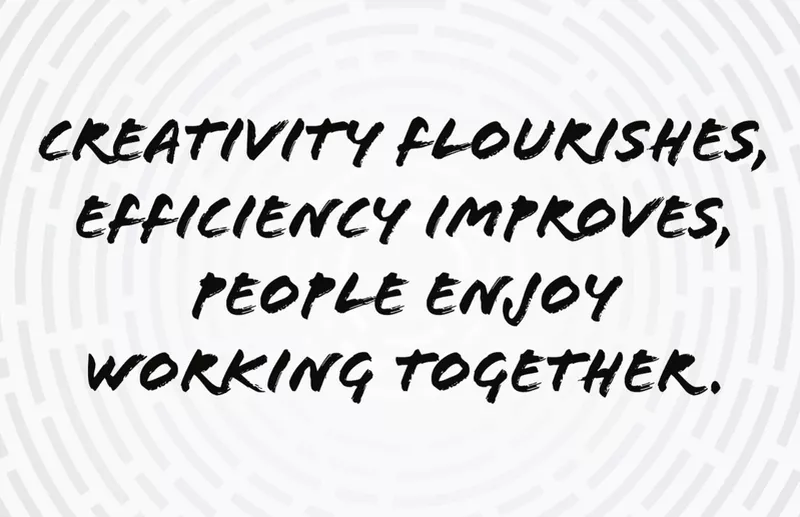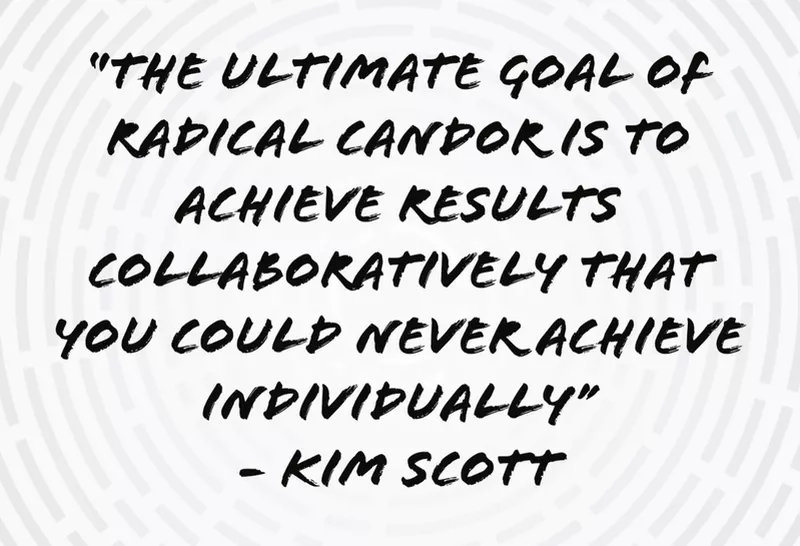8 Keys to Being an Amazing Boss
Kim Scott’s ideas about how to treat employees to inspire their best work were forged in the trenches. She saw enough bad bosses and lackluster managers during her time at big tech companies and small startups to know that if she ever had a chance to lead a team, she would do it differently.
Scott got that chance and now we can benefit from her approach to leadership, which she details in the new book “Radical Candor.” She preaches neither tough love nor excessive praise but something deeper, a path to making a workplace that fosters hard-won honesty and trust.
Her experiences toiling under less than ideal supervisors motivated her to branch out, start her own company — becoming co-founder and CEO of Juice Software — and try to be a kick-ass boss herself. She has since worked as a CEO coach at Dropbox, Qualtrics, Twitter, managed sales teams at Google and been on faculty at Apple University. She used the lessons she learned at her own company and many others to write this book.
Of course, she didn’t become a super-boss overnight. In relating her transformation, Scott doesn’t shy away from sharing the errors she made. We learn from hearing about her own blunders as much as her stories about the shortcomings of others issuing edicts from the corner office.
No matter if you’ve managed employees for a long time, or you just hope to sit in the boss’ seat one day, “Radical Candor” can help you reach your potential. Here’s how…
Make Every Team Member Effective
You can’t control other people’s emotions or their lives, but you can help to mold them into successful team members. As a manager, it’s your job to make sure the people on your team are as effective as they can be.
To do that, get to know the people who report to you. Gain their trust, build a strong rapport with them. It’s not as simple as it sounds, but the rewards can be astounding.
Scott emphasizes the need for honesty, or as she call it “radical candor,” in a workplace. Laying the groundwork for this culture to take hold takes care and deliberate steps that Scott details in her book. This is the true work of a great boss.
Candidness

Getty Images
To have a good relationship, you have to be your whole self and care about each of the people you work for as a human being. Scott refers to this as “caring personally.” But, what exactly does this mean … to be your whole self?
It means you need to tell the people who report to you when you are pleased with their work or performance, as well as when you’re not.
It’s also important to be honest with yourself, to be able to recognize when there is something amiss, to listen for those warning bells. It’s just as important to do this as it is to recognize and reward good work.
When you deliver honest feedback, you cement trust in your work relationships.
Charting ‘Radical Candor’
Care Personally
We are all human beings just trying to live our best lives in this crazy world. Sometimes, we have good days, sometimes bad. Be caring when you ask your subordinates about themselves. Really listen to them, and don’t be afraid to open up.
No, you don’t want to take on their hardships or become a burden yourself, but you should care about the people who work for you as human beings.
What’s the best way to show you care personally? Scott says it’s all about challenging directly.
Challenge Directly
We’re taught to be careful not to challenge others, especially if those people sit above you in your company or have more status in some other way. As a kid, you’re taught not to question your parents’ command to leave that cookie in the jar — you just have to obey them (or maybe sneak one when they’re not looking). In business, we don’t tell our bosses, coworkers, and employees everything they did wrong, because that would be rude, right?
“Challenging people generally pisses them off, and at first that doesn’t seem like a good way to build a relationship or to show that you ‘care personally,” Scott writes. However, she explains, you’ll find that most people will move past the annoyance or anger, especially if you indicate an openness to being challenged yourself.
It may seem foreign to most workplace cultures to challenge others and encourage them to challenge you, but it’s necessary for building the kinds of trusting relationships that Smith is after here. It shows you care enough to call out the good and the bad, and that you’re able to admit when you’re wrong. This candidness also shows you’re committed to finding real solutions.
It’s not about insults. Calling someone “a jerk” is not “radical candor.” If the feedback doesn’t exhibit that you ‘care personally’ it’s not going to work.
This brings us to open communication.
Open Communication

The “Get Stuff Done Wheel” suggests that successful teamwork and collaboration is fostered by open and ongoing communication. Radical Candor
Scott stresses a culture of open communication in her workplace. She writes, “There are two dimensions to good guidance: care personally and challenge directly …. When you do both at the same time, it’s Radical Candor.”
Yes, it’s important to establish trust, and that may mean criticizing more than praising. Smith says, always be open in your communication, come from a place of truth and you’ll know that you’ve not only been true to yourself, but also to your subordinates.
Giving criticism sprinkled with praise encourages people to keep trying and keep improving. As Scott writes, “The best praise does a lot more than just make people feel good. It can actually challenge them directly.”
Help Realize Dreams

Getty Images
We’re all humans with dreams, aspirations, wishes. It’s part of a leader’s job to understand your subordinate’s life goals and to know how their current position can help them achieve that dream.
Scott stresses it’s your job to have a real relationship with each person who reports to you directly. Not only do you need to be able to give them honest feedback, but you also need to know what motivates them.
A lot of people who work for you might say they aspire to be you, and that’s great. But chances are, they have other dreams. Maybe they want to open a farm, aspire to write the all-American novel, or open a coffee shop. Whatever their dreams are, it’s your job to know and understand them. That way, you feel closer to the people who report to you, and they feel like they are truly seen as individuals and can trust you.
“When putting the right people in the right roles on your team, you’ll also have to challenge people even more directly than you did with guidance,” Smith writes, “and in a way that will impact not just their feelings but also their income, their career growth, and their ability to get what they want out of life. Building a team is hard.”
Growth management

Help with Long-Term Goals
As a boss, part of your job is to find out what motivates everyone on your team, know what they’re long-term ambitions. This way you can begin to understand how their current situation fits into their motivation, as well as their life goals.
Your job as a boss is of course to promote and enhance your company’s performance, but you also have a responsibility to help those who report to you get closer to what they aspire to. Both goals work in tandem.
Smith writes: “Only when you get to know your direct reports well enough to know why they care about their work, what they hope to get out of their careers, and where they are in the present moment in time, can you put the right people in the right roles and assign the right project to the right people.”
‘Superstars’ vs. ‘Rock Stars’
Scott breaks down employees into two categories: Those on a steep growth trajectory, and those on a gradual growth path.
The former types are agents for change, they’re ambitious at work, and they want new opportunities. They’re the “Superstars.” The latter are a force for stability, their ambitious outside or work, or they’re thrilled in life, and they’re current role. They are the “Rock Stars.”
Both types of workers bring many benefits to your team. You can use growth management as a framework when thinking about the types of performers you have on your team.
“Shifting from a traditional ‘talent management’ mindset to one of ‘growth management’ will help you make sure everyone on your team is moving in the direction of their dreams, ensuring that your team collectively improves over time,” Scott writes. “Creativity flourishes, efficiency improves, people enjoy working together.”
Get Stuff Done

Gather small ideas
It may be because Americans tend to associate “bigger” with “better” that many assume that companies thrive off big ideas. But what really makes a company is all the little ideas that stem from an environment of caring and candor.
It’s important to listen to everyone’s ideas – no matter how small the idea might seem at first. Scott relates a story about an employee who came up with the idea of programming keyboards to create shortcuts for phrases that get used all the time. The employee didn’t revolutionize the keyboard, and she didn’t come up with the idea of the programmable keyboard. What she did was have one small idea that helped improve her team’s efficiency by 133 percent. That is one small idea that made a big contribution.
Foster these small ideas, Scott says. If someone on your team has one, and it works, share it with everyone. Praise the person who came up with the idea. And if the idea doesn’t work, praise that person for their initiative and encourage them to keep trying.
Work Together
“The ultimate goal of Radical Candor is to achieve results collaboratively that you could never achieve individually,” Scott writes. By employing “radical candor,” bosses can start to create the kind of team in which problems are solved before they erupt.
A team is just that, a team. Some people may excel at being rock stars, while others are rocking it as superstars. When a team and a manager recognize each other’s strengths and weaknesses, only then can they work together to achieve great results.
It Takes Work
Reading “Radical Candor” is not going to make you a better boss automatically. Being an amazing boss takes time and work – but you can do it. Just as you work on your personal relationships — your marriage, your parents, your kids, friends — you must also foster your work relationships. Don’t be too hard on yourself if things aren’t working the way you want them to — keep trying.
Keep on the “Radical Candor” highway, and when you notice the small changes, know that your team is succeeding.
“Radical Candor” is not just a good read for bosses or managers. It offers practical advice for anyone in the workforce — those who are a boss as well as those who work for a boss. Scott’s insights can enlighten us all on what a good manager should be and how to get there.